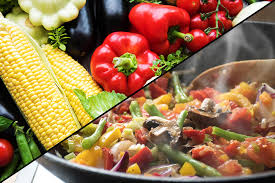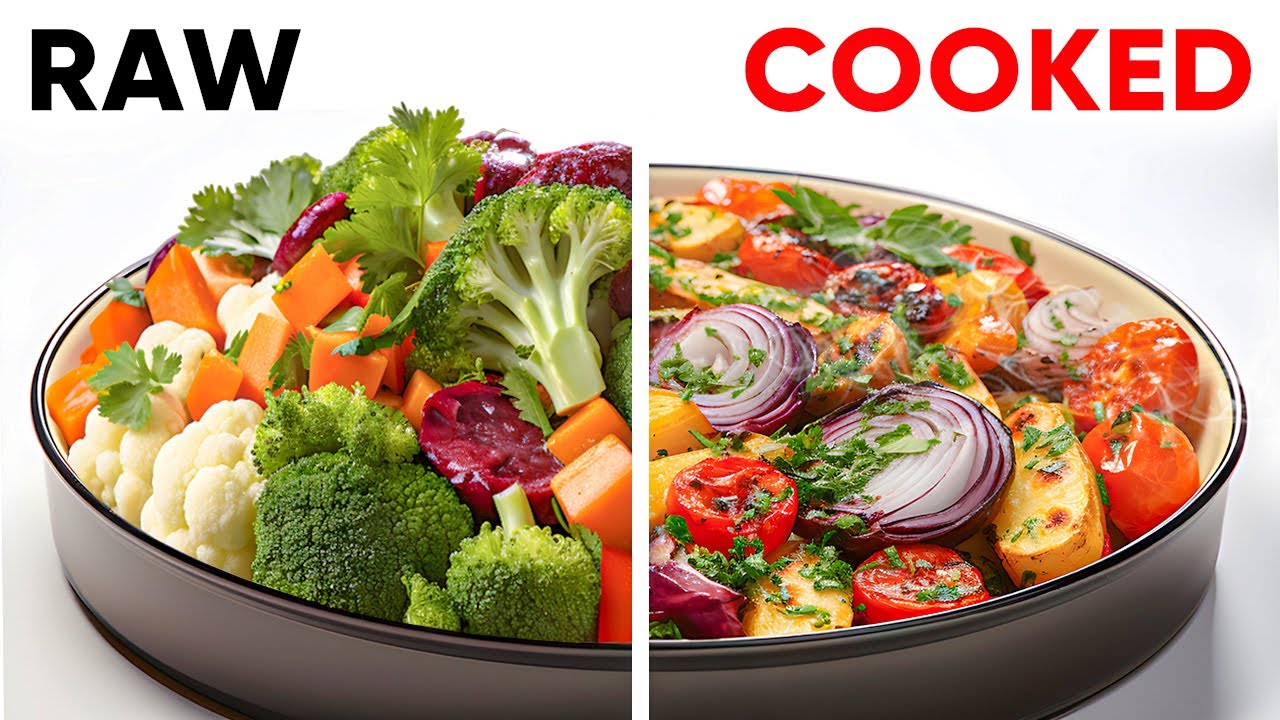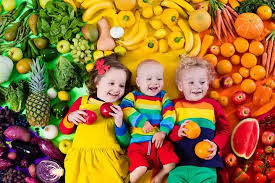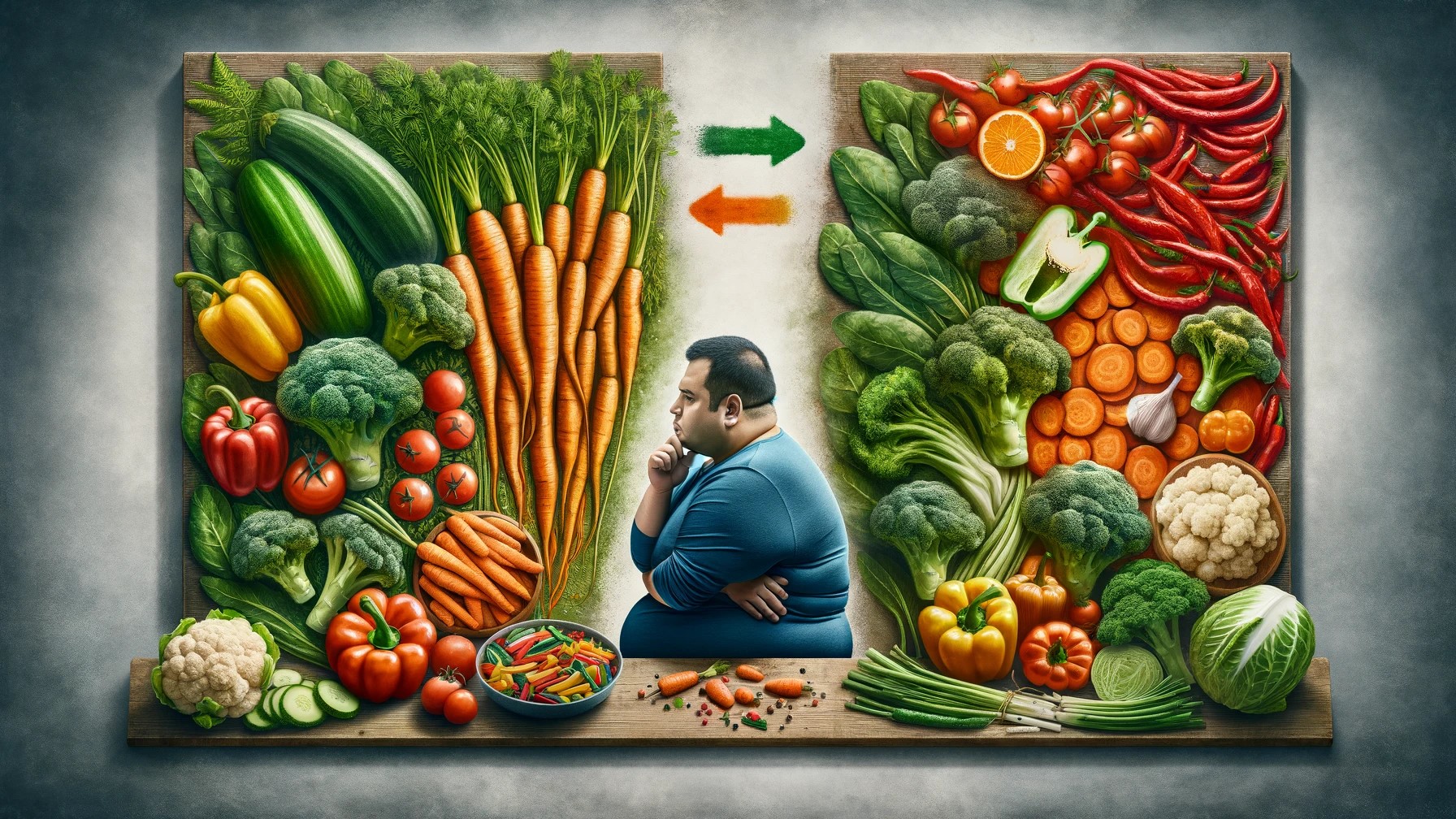Obesity is a major concern nowadays. Everybody wants a rapid weight loss rather than a slow and steady one. However, there is a simple and sustainable approach that lies right in our kitchen – raw vegetables. Veggies are one of the most popular foods for weight loss because of their low-calorie content.
Low in calories:
The basic tenet of weight loss is to consume fewer calories than you burn off. Because raw vegetables are naturally low in calories but high in volume, you won't have to worry about gaining weight. You can enjoy bigger segments without feeling regretful on the grounds that a serving of crude vegetables gives satiety without surpassing calories
Rich in Fiber contains:
The unsung hero of weight loss. It not only aids in digestion but also promotes a feeling of fullness that can curb cravings and prevent overeating. Leafy greens, cucumber, broccoli, and other raw vegetables are abundant sources of dietary fiber. By including these foods with a lot of fiber in your diet, you can control your appetite and stay full for longer, which will make it less tempting to reach for unhealthy snacks.
Nutrient Density:
Despite their low-calorie count, raw vegetables are nutritional powerhouses. Loaded with nutrients, minerals, and cell reinforcements, they give fundamental supplements that help by and large well-being and prosperity. By including colorful vegetables in your diet, you can be sure to get a variety of nutrients, each of which helps keep your body functioning properly. These micronutrients, which range from beta-carotene in carrots to L-ascorbic acid in ringer peppers, give sustenance to your body as well as add to a brilliant coloring and expanded imperativeness.
Boost of Hydration:
 If you want to lose weight, it's important to stay hydrated because thirst can often be mistaken for hunger, which causes you to eat too many snacks. Cucumbers and celery, among other raw vegetables, contain a lot of water, which helps you stay hydrated and makes you feel fuller. By munching on hydrating veggies throughout the day, you can keep cravings at bay and maintain optimal fluid balance, supporting your weight loss efforts from within.
If you want to lose weight, it's important to stay hydrated because thirst can often be mistaken for hunger, which causes you to eat too many snacks. Cucumbers and celery, among other raw vegetables, contain a lot of water, which helps you stay hydrated and makes you feel fuller. By munching on hydrating veggies throughout the day, you can keep cravings at bay and maintain optimal fluid balance, supporting your weight loss efforts from within.
Versatility in Culinary Creations:
Involving crude vegetables in the kitchen, which give a boundless number of choices, permits you to be imaginative with your feasts while as yet sticking to your weight reduction goals. There are various delectable ways of remembering crude vegetables for your eating regimen, including lively servings of mixed greens, crunchy crudité platters, empowering smoothie bowls, and fiery vegetable wraps. Find new favorites by experimenting with various combinations, textures, and flavor profiles to keep you excited about eating healthily.
Low in Added Sugars and Fats:
Raw vegetables, in contrast to processed snacks and high-calorie foods, naturally lack added sugars and fats. By picking these healthy choices as bites or sides, you can fulfill your appetite without crashing your weight reduction progress. You'll notice a reduction in your waistline and an increase in your energy levels if you replace chips and cookies with crunchy carrot sticks or cucumber slices dipped in hummus.
Which one is better: cooked vegetables or raw vegetables?
Cooked vegetables have higher calories than raw vegetables. Cooking makes food calories dense by evaporating water. Raw vegetables contain more water-soluble vitamins as compared to cooked vegetables.
Which Veggies Are Good For Weight Loss?
 Starchy vegetables such as corn and potatoes, contain more calories than Non-starchy vegetables such as broccoli, leafy greens, peppers, carrots, and cauliflower. Non-starchy vegetables contain more fiber, which helps to maintain satiety and also maintain high sugar levels, the most important thing in how we prepare the vegetables like adding butter or cheese to raw or cooked salad adding more calories to the food.
Starchy vegetables such as corn and potatoes, contain more calories than Non-starchy vegetables such as broccoli, leafy greens, peppers, carrots, and cauliflower. Non-starchy vegetables contain more fiber, which helps to maintain satiety and also maintain high sugar levels, the most important thing in how we prepare the vegetables like adding butter or cheese to raw or cooked salad adding more calories to the food.
Health consequences:
though eating a lot of vegetables can be very good for your health, only eating vegetables and not eating other food groups can have some bad effects on your health. The following are a few potential drawbacks of eating only vegetables
Nutrient Deficiencies:
Protein Insufficiency:
Even though vegetables contain a lot of the essential nutrients and minerals your body needs, they may not provide all of them in adequate amounts. Vitamin B12, iron, zinc, and omega-3 unsaturated fats, which are for the most part tracked down in creature items, are by and large scant in vegetables. These supplements can cause exhaustion, shortcomings impeded safety capability, and other health issues over time.
Risk of Malnutrition:
If you don't carefully plan your meals to ensure that you're getting all the essential nutrients your body needs, cutting out whole food groups like meat, dairy, and grains can increase your risk of malnutrition. Malnutrition can lead to a range of health issues, including weakness, fatigue, poor immune function, and impaired cognitive function.
Potential for Disordered Eating:
If you only eat vegetables, you might develop an unhealthy obsession with food, rigid eating habits, and feelings of guilt or anxiety about certain foods. As a result, restrictive eating disorders such as orthorexia nervosa and others may develop more frequently. Influence on Glucose Levels: While most vegetables are low in carbs and meaningfully affect glucose levels, bland vegetables like potatoes, yams, and corn can cause a greater spike in glucose. Depending solely on these types of vegetables may lead to fluctuations in blood sugar levels, which can negatively affect energy levels, mood, and overall health.
Potential Weight Loss Plateau:
While vegetables are low in calories and can uphold weight reduction when included as a feature of a reasonable eating regimen, depending exclusively on vegetables may not give sufficient energy to support your metabolic requirements. Thus, you might encounter a weight reduction level or trouble keeping up with weight reduction in the long haul. Despite the fact that vegetables are low in calories and can assist you with shedding pounds assuming that they are important for an even eating regimen, eating just vegetables probably won't give you enough energy to meet your metabolic requirements. As a consequence of this, you might have difficulty maintaining your weight loss over time or reach a plateau in your weight loss.
